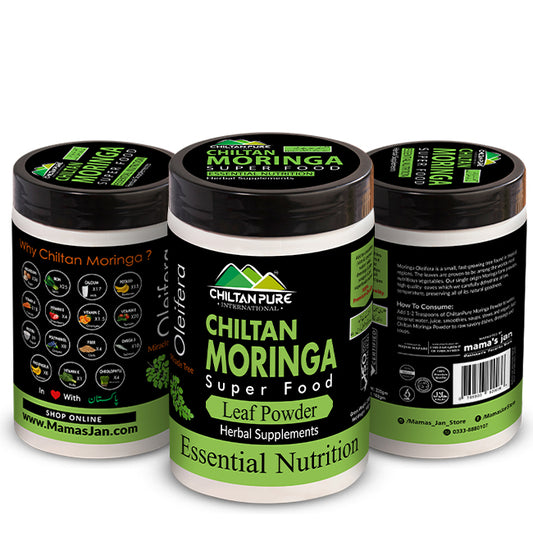Almond Nuts – High in Fiber & protein, Helps lower blood pressure, Reduce hunger & promotes weight loss – 100% pure organic 180gm
- Regular price
- Rs. 999
- Regular price
-
Rs. 1,110 - Sale price
- Rs. 999
- Unit price
- per
Pay in 3 Installments of
Rs.
383
Prime Fast Delivery
|
Vendor:
ChiltanPure
10 customers are viewing this product
Couldn't load pickup availability

Vendor: ChiltanPure
Almond Nuts – High in Fiber & protein, Helps lower blood pressure, Reduce hunger & promotes weight loss – 100% pure organic 180gm
Rs. 999
Vendor: ChiltanPure
Almond Nuts – High in Fiber & protein, Helps lower blood pressure, Reduce hunger & promotes weight loss – 100% pure organic 180gm
Rs. 999
Note: Organic products can naturally attract bugs. To keep them away, tightly seal the jar after use and keep it in a cold, dry place.
Chiltanpure Almond Nuts
Indulge in the rich, nutty goodness of roasted & salted almonds of Chiltanpure, a perfect combination of crunch, flavor, and nutrition. These premium-quality almonds are dry-roasted to enhance their natural taste and texture. A light sprinkle of salt adds just the right amount of savory flavor, making them a deliciously satisfying snack. Whether you’re looking for a quick energy boost, a healthy alternative to processed snacks, or a flavorful addition to your meals, roasted and salted almonds offer the perfect balance of taste and health.
They are packed with essential nutrients; almonds are a superfood known for their numerous health benefits. They are loaded with protein, fiber, healthy fats, vitamins, and minerals, making them a powerhouse of nutrition. Regular consumption of almonds supports heart health by reducing bad cholesterol (LDL), which helps to maintain a healthy cardiovascular system. Additionally, their high fiber and protein content keeps you feeling full for a longer time. Moreover, they are rich in vitamin E and antioxidants; they help improve memory and cognitive function.
Ditch unhealthy, processed snacks and switch to Roasted & Salted Almonds—a snack that not only satisfies your cravings but also fuels your body with essential nutrients. Whether you're at work, on the go, or relaxing at home, these almonds are the perfect guilt-free snack to keep you energized and healthy.
Shop Pure Almond & Get delivery in Karachi, Lahore, Rawalpindi, Islamabad, Faisalabad, and across Pakistan.
badam piste / roghane badaam / almons Geri / rogan e pakhan baid / sardiyon ki sogat
Supports Heart Health
Almonds contain monounsaturated fats and antioxidants that help lower bad cholesterol (LDL) and reduce the risk of heart disease. Regular consumption supports overall cardiovascular health.Boosts Brain Function
Almonds are known as a brain food! Rich in vitamin E and omega fatty acids, they help improve memory, concentration, and cognitive function. They are especially beneficial for students and working professionals.Aids in Digestion
The fiber in almonds promotes good gut health, prevents constipation, and supports a healthy digestive system. Soaked almonds are particularly easy to digest.Provides Energy & Stamina
Almonds are a natural energy booster, making them a perfect pre-workout snack. Their balanced combination of protein, healthy fats, and minerals helps maintain energy levels throughout the dayStrengthens Bones, Skin & Teeth
Rich in calcium, magnesium, and phosphorus, almonds support strong bones and teeth, reducing the risk of osteoporosis. The vitamin E and antioxidants in almonds nourish the skin, reduce signs of aging, and prevent dryness. Almond oil can be applied to the skin and hair for hydration and shine.|
Eat a handful of mixed nuts as a healthy alternative to chips and processed snacks.
|
|
Sprinkle chopped nuts over yogurt, oatmeal etc
|
|
|
|
|
Related Products
Mama's Jan
Example product title
- Regular price
- From Rs. 999
- Regular price
-
Rs. 1,110 - Sale price
- From Rs. 999
- Unit price
- per
Mama's Jan
Example product title
- Regular price
- From Rs. 999
- Regular price
-
Rs. 1,110 - Sale price
- From Rs. 999
- Unit price
- per
Mama's Jan
Example product title
- Regular price
- From Rs. 999
- Regular price
-
Rs. 1,110 - Sale price
- From Rs. 999
- Unit price
- per
Mama's Jan
Example product title
- Regular price
- From Rs. 999
- Regular price
-
Rs. 1,110 - Sale price
- From Rs. 999
- Unit price
- per
Mama's Jan
Example product title
- Regular price
- From Rs. 999
- Regular price
-
Rs. 1,110 - Sale price
- From Rs. 999
- Unit price
- per
Mama's Jan
Example product title
- Regular price
- From Rs. 999
- Regular price
-
Rs. 1,110 - Sale price
- From Rs. 999
- Unit price
- per
Mama's Jan
Example product title
- Regular price
- From Rs. 999
- Regular price
-
Rs. 1,110 - Sale price
- From Rs. 999
- Unit price
- per
Mama's Jan
Example product title
- Regular price
- From Rs. 999
- Regular price
-
Rs. 1,110 - Sale price
- From Rs. 999
- Unit price
- per
Mama's Jan
Example product title
- Regular price
- From Rs. 999
- Regular price
-
Rs. 1,110 - Sale price
- From Rs. 999
- Unit price
- per
Mama's Jan
Example product title
- Regular price
- From Rs. 999
- Regular price
-
Rs. 1,110 - Sale price
- From Rs. 999
- Unit price
- per
Recently Viewed Products
Mama's Jan
Example product title
- Regular price
- From Rs. 999
- Regular price
-
Rs. 1,110 - Sale price
- From Rs. 999
- Unit price
- per
Mama's Jan
Example product title
- Regular price
- From Rs. 999
- Regular price
-
Rs. 1,110 - Sale price
- From Rs. 999
- Unit price
- per
Mama's Jan
Example product title
- Regular price
- From Rs. 999
- Regular price
-
Rs. 1,110 - Sale price
- From Rs. 999
- Unit price
- per
Mama's Jan
Example product title
- Regular price
- From Rs. 999
- Regular price
-
Rs. 1,110 - Sale price
- From Rs. 999
- Unit price
- per
Mama's Jan
Example product title
- Regular price
- From Rs. 999
- Regular price
-
Rs. 1,110 - Sale price
- From Rs. 999
- Unit price
- per
Mama's Jan
Example product title
- Regular price
- From Rs. 999
- Regular price
-
Rs. 1,110 - Sale price
- From Rs. 999
- Unit price
- per
Mama's Jan
Example product title
- Regular price
- From Rs. 999
- Regular price
-
Rs. 1,110 - Sale price
- From Rs. 999
- Unit price
- per
Mama's Jan
Example product title
- Regular price
- From Rs. 999
- Regular price
-
Rs. 1,110 - Sale price
- From Rs. 999
- Unit price
- per
Mama's Jan
Example product title
- Regular price
- From Rs. 999
- Regular price
-
Rs. 1,110 - Sale price
- From Rs. 999
- Unit price
- per
Mama's Jan
Example product title
- Regular price
- From Rs. 999
- Regular price
-
Rs. 1,110 - Sale price
- From Rs. 999
- Unit price
- per
- Choosing a selection results in a full page refresh.












![Chia Seeds – Make Skin Glow, High in Fiber, Protein & Aid in Weight Loss [تخم میکسیکو]](http://mamasjan.com/cdn/shop/files/Chia-seeds-wb_1_533x.jpg?v=1739000274)
![Chia Seeds – Make Skin Glow, High in Fiber, Protein & Aid in Weight Loss [تخم میکسیکو]](http://mamasjan.com/cdn/shop/files/ChiaSeeds1_533x.jpg?v=1739000274)




![Red Onion Oil 🧅 Reduces Hair Fall & Accelerates Hair Regrowth [پیاز کا تیل].. Trending.... 🔥](http://mamasjan.com/cdn/shop/files/Onion-Oil_533x.jpg?v=1707234402)
![Red Onion Oil 🧅 Reduces Hair Fall & Accelerates Hair Regrowth [پیاز کا تیل].. Trending.... 🔥](http://mamasjan.com/cdn/shop/files/shampoo-oil-4_3a0058c6-20d2-4f79-8050-19cf717015ac_533x.jpg?v=1708103599)







